Each year I give myself something to think about - often this impacts the kind of posts I write. During 2024 I decided to explore human values and as this year comes to a close I feel I am not yet ready to move on from this line of thinking.
During this year I have had the opportunity to not only travel to different towns and different countries but also different continents. I learn so much when I travel to places very different from my home - not only about the geography and culture of the place but also about myself.
It also is a healthy reminder of just how much I don’t know. I mean I know this about myself already - but to fully experience your own ignorance is also very humbling - not knowing the language, not being able to read labels and signs, not knowing the social cues within different cultures (and trying to learn them fast) not knowing the food, the culture, the history, the wildlife etc etc… I do learn some things before going anywhere but it is a massive reminder that it takes a lifetime to learn how to be ourselves within the community we live in.
I think this is something that as teachers we need to be constantly thinking about - how do we support children to be themselves within the community they live and brave enough to venture into the world to be themselves elsewhere without being disrespectful to the community they visit.
The words reciprocity, interdependency, listening, collective autonomy and consent all come into mind. This is what I think our teaching needs to focus on - to create a strong “mwe” - where me and we are equally valued. To me, this is the essence of human value where both the individual and the community are valued.
I listened to Noam Chomsky, who popped into my social media feed where he talks about moral integrity. He describes a hypocrite as a person who refuses to apply the same standards of moral behaviour to themselves that they demand of others - and considers there is something wrong if we are unable to rise to a minimum moral integrity. (I have started a new highlight over on my Instagram titled “Think” and you will find the clip there - I will over time add more things that make me think to the highlight).
Sadly I think this is a massive problem in the world today - frequently connected to capitalist colonial approaches to living that Western thinking is saturated in - it impacts our education system, who and what is discriminated. it is also something that happens on a smaller scale in education - teachers expecting children to follow routines that they themselves won’t (like raising you hand to speak… seems small and insignificant - but its hundreds of small and insignificant things that add up).
It’s why I so appreciate the opportunity to visit non-Western countries. In Bali, for instance I loved the magical feel of a culture that straddles two realms (like a child does - the realm of the reality they live in, and the play they live). In Bali it was the reality of the world they lived in and their traditional spiritual world. Sometimes it felt like parts of it had been westernised - but there were still these magical pockets of pure belief and connection with tradition and ritual. And there were lots of daily rituals.
And I think this is the same for children - their lives are filled with beliefs and rituals. In my book the Original Learning Approach (p. 27) I talk about the seven principles of Indigenous methodology (Archibald et al 2019) and how they can support our understanding of play
Respect
Reverence
Reciprocity
Responsibility
Holism
Interrelatedness
Synergy
Holding rituals and ceremonies allow our communities to participate together and also invite the extraordinary to occur in our everyday. These can be as simple as storytelling, meal sharing, dressing, toileting and also manifest as adults honouring play.
I prefer the word ritual over routine - especially as a mother of autistic children it feels more life affirming that we have our daily rituals that helps us transition from one thing to another, or to create a state of mind, rather than routines that must be done. It feels more dynamic and meaningful.
I also think that the concept of rituals rather than routines can help us, as educators, to create space for the magic within the ordinary. It was back in 2011 when a colleague said to me “you have changed what routines are for me - they are no longer a must that interferes with my work as a teacher but an opportunity for connection and care”.
I mean, how often do we get the chance to be one-on-one with children during preschool hours? Often we are juggling multiple children at the same time - but once a young child is on the changing table it is just the two of us - and I take time to relish those short moments. It is not just a must, but a ritual of connection, love, care and joy. The same with helping children dress. I see each moment as a ritual of connection (although there are days where this can feel harder than other days) - sometimes I will help a child that does not need help to put their coat on, because the ritual of help is also physical contact and a message of care - and most of those times I will quietly whisper to them “I know you can do this yourself, but I enjoy being with you and helping gives me an excuse for you and me to be together”. Of course if I offer help and the child does not want it, I do not force that help on them - force is not part of the ritual of care and play.
In Vietnam many of these rituals of care were more prolonged than those I am used to in Sweden. For instance sleeping was a ritual - after lunch the children were washed, a full body wash with a wet cloth offering one-to-one connection (and considering the children played hard (running fast etc) in the heat they were often sweaty, so this was a lovely way to cool down and feel fresh again), they changed into pyjamas and then a long nap or rest. The teachers also napped at this time with the children, including the staff in the office.
Over the years the ritual of rest is a gift I have offered all the children I have worked with. Learning how to rest and feel relaxed is an important skill. So much of what I have done has been about making the space inviting (social, physical, emotional, cognitive and temporal space) and also being open with the children and their parents about the importance of rest - so they know it is meaningful, and what they can do during their rest - listen to the music/story, daydream, think about the morning and what they would like to do in the afternoon, plan a story they want me to write down for them etc etc. What I think is important for me to consider is how long should rest be - to not force them into a situation that is uncomfortable. I found thirty minutes worked really well - those who needed to fall asleep fell asleep during this time, and those who did not were rested enough to manage the afternoon. It felt important that rest time was pleasant and positive - it is, after all, a part of article 31 of the UN rights of children together with play - and forcing children to rest longer than their bodies actually needs means it is no longer ritual and is instead the exertion of adult power over children under the pretext that it’s for the benefit of the children but failing to understand the actual impact of these forced routines.
Article 31
1. States Parties recognise the right of the child to rest and leisure, to engage in play and recreational activities appropriate to the age of the child and to participate freely in cultural life and the arts.
2. States Parties shall respect and promote the right of the child to participate fully in cultural and artistic life and shall encourage the provision of appropriate and equal opportunities for cultural, artistic, recreational and leisure activity.
This makes me think that rituals rather than routines can be a simple way for us as educators to take the time to consider human values within the context of the early years - maybe throughout life.
How can the following become a ritual rather than a routine?
fruit snack
lunch
toileting
dressing
morning meeting/gathering/circle time
time for children’s autonomous play
tidying up
walking to playgrounds/nature spots/excursion destinations
teaching time
If we teach with all seven principles of Indigenous methodology then there is a chance that our teaching will feel closer to ritual than routine.
As Mike Huber writes in his new upcoming book “The Power of Play” rituals are relationship based rather than rules based. This means we are creating a base/space, as educators, for the children to be in, where there is a sense of flexibility within the boundaries of the ritual - while a routine is more fixed, with more musts and more likely that we correct individuals unable to adhere to those musts.
As a mother of autistic children this flexibility within boundaries has been vital for our daily well-being. The boundary created the safe space, the flexibility ensured that it was brave and autonomous. Actually, much of my work as a mother, when my children were young, was to ensure that our lives did not become too rigid - it would have been all too easy to have had lots of routines that we followed religiously - but then my power would be disempowering my children - there would be no space to practice their competence. My job was to ensure the boundaries were just right for them throughout their childhoods - the boundaries are dynamic, not just expanding, but sometimes shrinking to ensure a sense of safety when the world felt too big and overwhelming.
Sometimes I am unsure if it is my mothering skills that helped me in my teaching, or my teaching skills that helped me in my mothering. But what I do know is that it is children that have been guiding me how to respond, what I need to be learning and researching - and what topics, subjects and disciplines I need to explore in order to find out what the children need me to know to be a play responsive teacher. I don’t follow the children - but I listen and then follow my instincts as to what I need to know.
Back to not knowing. We can’t learn it all. So we have to be satisfied with being the good enough teacher/parent. But what I do know, is that if we don’t create good relationships with the children we work with (or parent) they will probably not share with us what they need us to learn. It starts with care and love, and honouring play
(photos found at the end)
If you would like to read more about play and ritual then why not try this review of a book (the book is expensive so I haven’t been able to read it… but might look for a library copy some day) but the review can open up some thought to consider - Below is how it starts…
Ritual, Play and Belief, in Evolution and Early Human Societies
Edited by Colin Renfrew, Iain Morley, and Michael Boyd
Reviewed by Edward Swenson
This edited volume brings together an interdisciplinary team of archaeologists, biological anthropologists, animal ethologists, and psychologists to explore the shared cognitive and evolutionary foundations of play, ritual, and sport. Inspired by Huizinga’s theory of Homo ludens, authors in part 1 of the compendium debate whether the “the primaeval soil of play” (32) underwrote the development of creativity, art, and religion in early human societies. In addition, they explore both structural similarities and differences between play behaviors and ritual while attempting to define these critical concepts within a long-term evolutionary framework. Burghardt traces the evolution of different modes of play in animals, primates, and humans, while Bateson, Morley, and Daissanayake consider whether the development of pretend and imaginative play, unique to only the more advanced hominins and Homo sapiens in particular, laid the groundwork for representation, pretense, and innovation
of course when I write the statement “Ritual of Play” it is about honouring the space for play and not seeing time for children’s play simply as a time slot in the day - but something we need to value and respect, and to believe in the power of play.
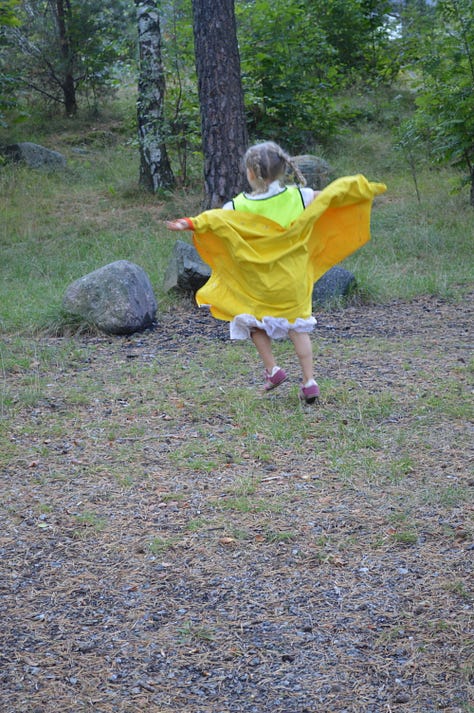
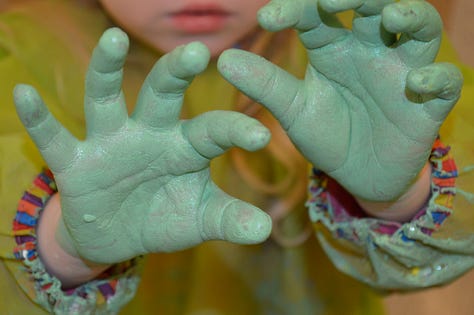
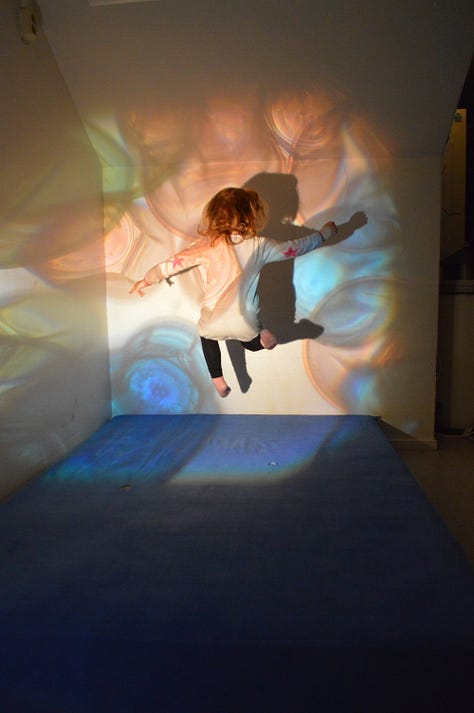
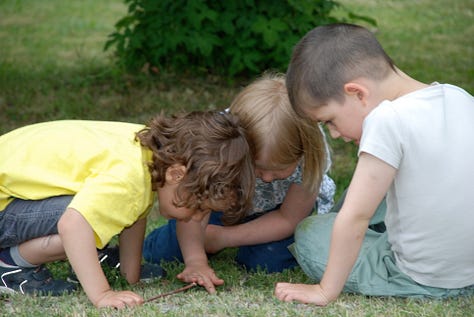
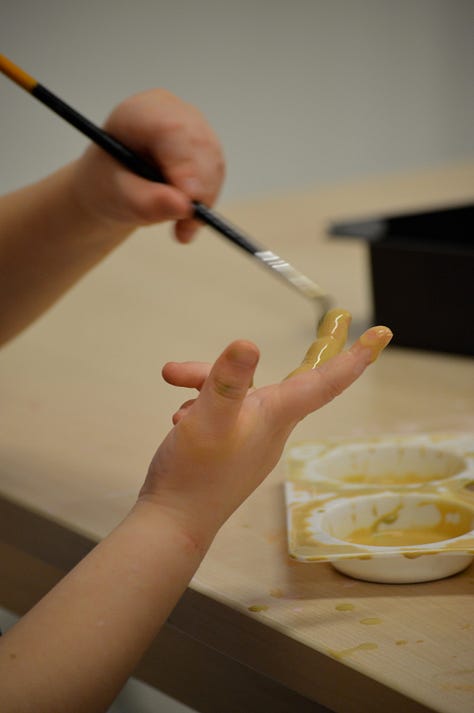
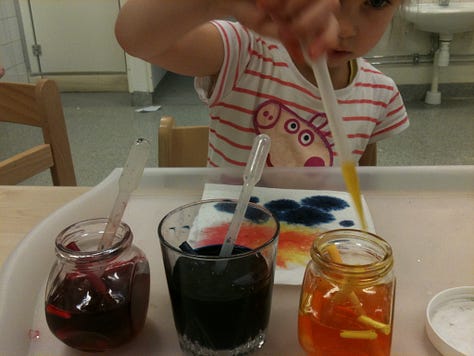
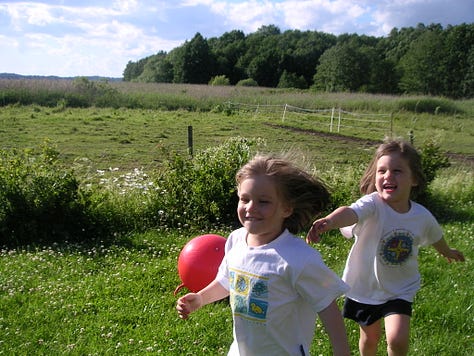
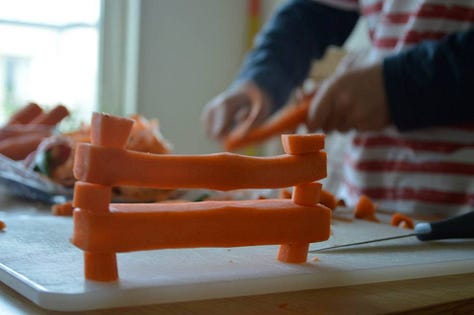
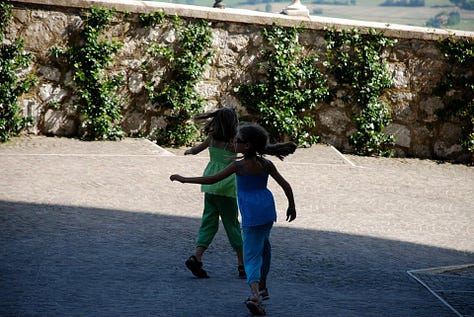

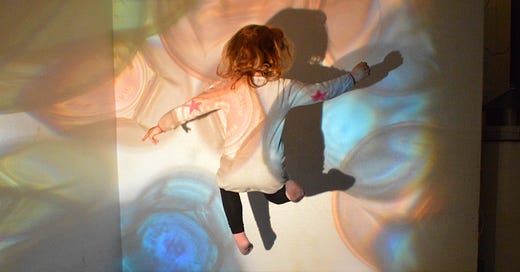


Thank you for sharing your thoughts on rituals. I like how you tie them together with care and highlight the importance of building relationships through them, not only to each other but to others in the present, generations back and connecting forward. I want to thank you for making me understand the importance of the knowledge that the indigenous people lived with and that generations of us suppressed. There are generations of relearning ahead of us and what better way than to also change the way we think learning takes place? For me, your text with all the experiences from different places in the world reflects the importance of listening to one's place, learning from history and seeing people. I wish you a playful new year and I, who have the joy of being your friend, hope to play together many times! Love Linda
Again, I love how you play with language! And... Yes! Rituals! The kids turned a suggestion of mine to smell the aroma of a wonderful Jefferies Pine into a repeating ritual. Hug the tree and drink in its aromas every meetup on the way into the forest! I also love our opening-circle ritual that gives us a chance to check in with ourselves and each other! Feelings, gratitude, requests of each other and the universe. https://peterkindfieldphd.substack.com/p/opening-circle-and-check-in